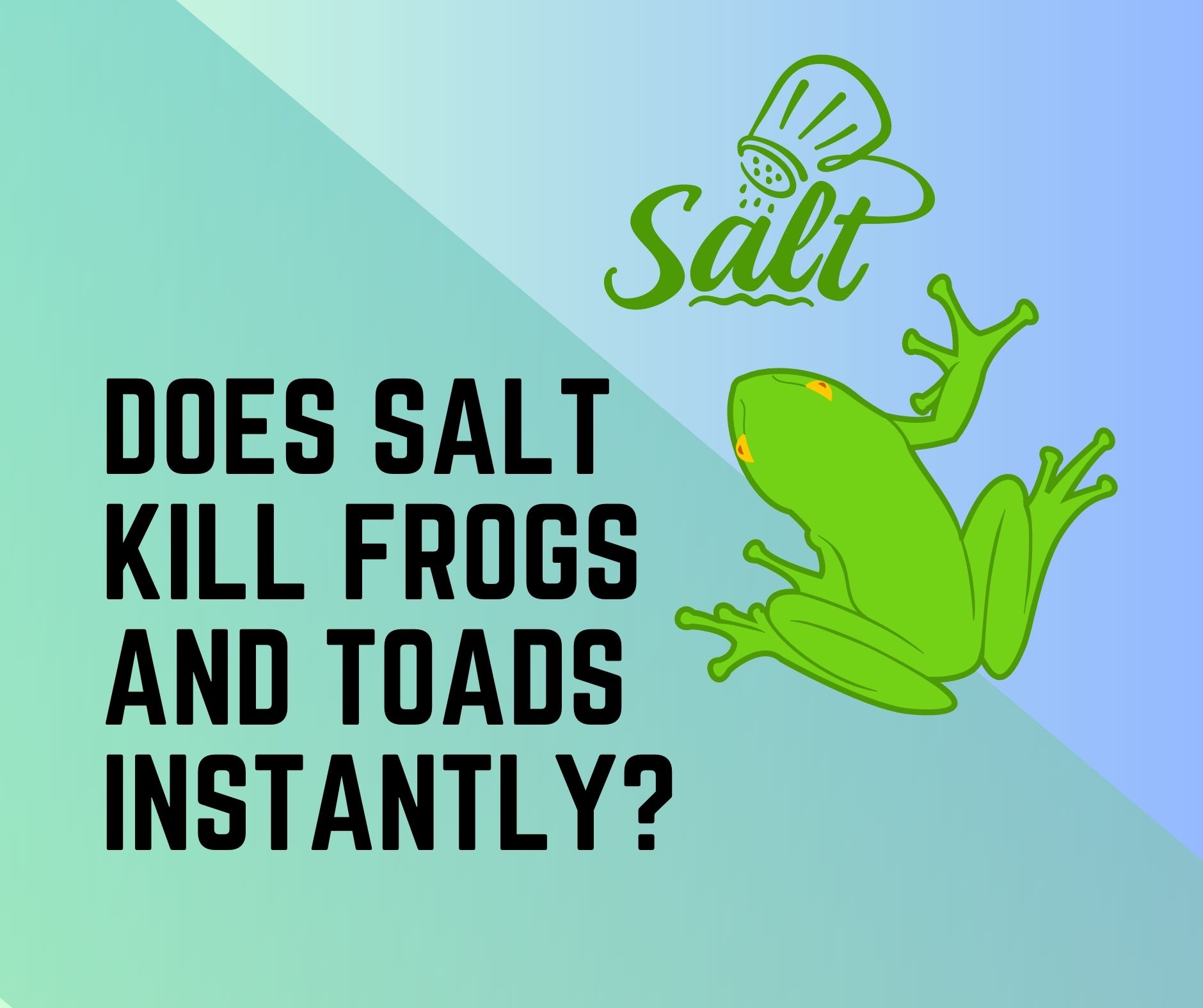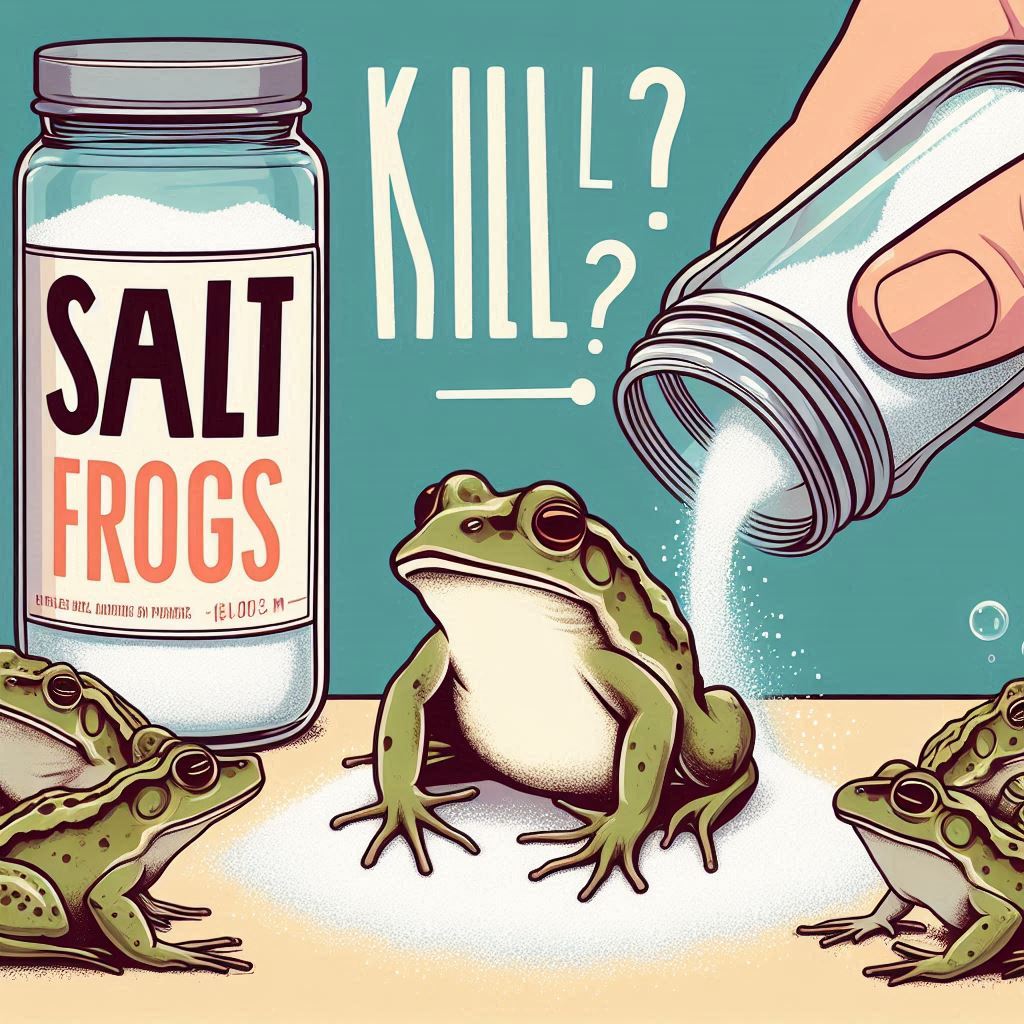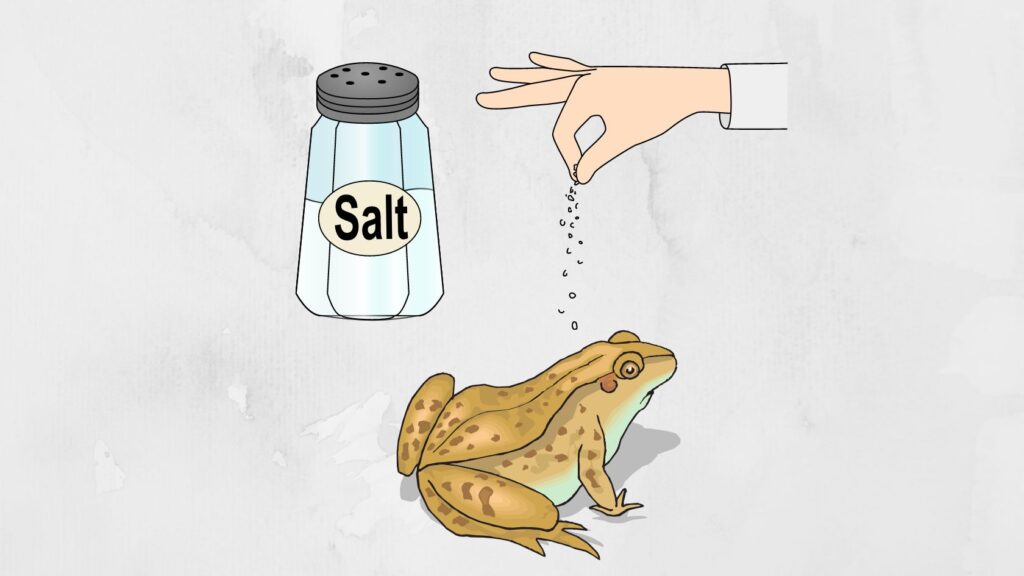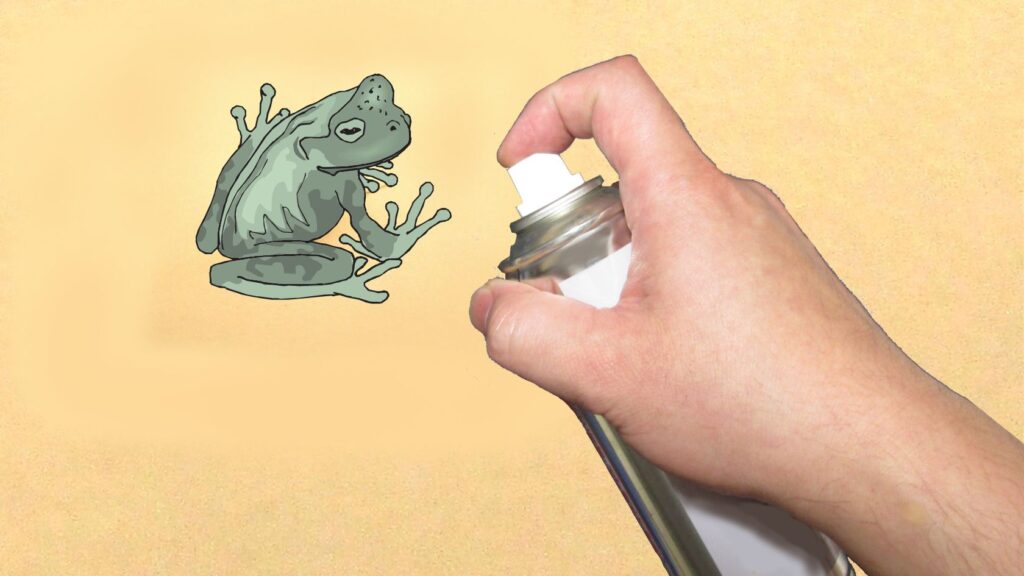
A question that has been repeatedly asked, “Does salt kill frogs and toads instantly?” is still going around the internet. And even after so many years, it has puzzled a lot of people. But, Whether or not Salt kills frogs, toads, or other amphibians instantly is a great topic with many misconceptions.
The answer to “Does Salt Kill Frogs And Toads Instantly”? It isn’t very simple and straightforward as a Yes/No. The TV show and movie portrayals make people believe that Salt can kill small amphibians instantly. But is everything shown on screen true? Well, absolutely not. Salt is a commonly used food ingredient used for preserving food and dissolving a lot of things (even human and animal flesh).
Whether or not it can kill frogs and toads instantly depends upon a lot of factors. There’s a deeper science behind such claims and a lot of considerations that come in between. The type and concentration of Salt, the species and size of frogs/ toads or other amphibians, and more such factors impact the situation. Salt is a powerful desiccant, and it can definitely dissolve dead frogs in the long run. However, whether it can kill a frog instantly is a question we will dive deep into today.
Join us in this article, and let’s explore the answer to “Does Salt Kill Frogs And Toads Instantly?”.

Salt Cannot Kill Frogs and Toads.
Salt is harmful to frogs and toads and can lead to their death, but it does not necessarily kill them instantly. The effects of salt on amphibians depend on the concentration of salt and the length of exposure.
When exposed to high concentrations of salt, frogs and toads can experience dehydration, which can lead to organ failure and death. This process may take some time, and the length of time may depend on the species of amphibian, their size, and other factors.
It’s also worth noting that it is not recommended to use salt as a method of killing or controlling frogs or toads. It is inhumane and can cause unnecessary suffering to the animals. There are more humane and effective ways to manage amphibian populations, such as habitat modification or relocation by a licensed professional.
What Happens When You Pour Salt On A Frog?
Pouring Salt on a frog or a toad can have severe consequences making the poor being dealing with a lot of suffering. It is a cruel and inhumane act that is illegal in many countries and can even result in severe penalties.
Many myths are associated with what happens when you pour Salt over a frog or toad, but the truth is cruel and harmful for the poor amphibian. When you pour Salt over a frog’s body (living frog), it will cause a severe burning sensation.
This sensation will further lead to intense distress and pain. Pouring Salt on a frog’s skin can also cause the skin tissues to get damaged and dried out. It, in some cases, can also lead to dehydration and other health issues.
When frogs come in contact with Salt, their skin starts losing water since Salt interferes with their natural osmotic balance. Maintaining this balance is critical for those fluids and electrolytes in the frog’s body.
Pouring Salt over frogs can also lead to health complications like metabolic imbalance, organ damage/ failure, and sometimes even death.
Frogs are considered an ‘Indicator species,’ an important part of our ecosystem. Their health and population-level indicate the overall health of the ecosystem. Therefore, it is inhumane and dangerous for our environment to kill frogs using Salt or other such practices.

What Does Salt Do To Toads?
Salt has nearly a similar impact on toads as on frogs. When you pour Salt on toads, the poor amphibians will face brutal consequences. Toads are known to have thicker and warty skin than frogs. Their skin types make them more resistant to desiccation than frogs.
However, prolonged exposure to Salt can cause suffering to toads as well. Upon coming in contact with Salt, toads commonly have to deal with dehydration and tissue damage. As someone pours Salt over their body, toads will experience a severe burning sensation deeper into their skin. However, the damage may be less or slower than that on frogs.
Does Salt Kill Toads?
Yes, Salt can kill toads, but it is not an instant process and much consideration is associated. Pouring Salt on a toad will not instantly kill it but leave the amphibian with a severe burning feeling. Exposure to Salt will slowly start causing dehydration, eventually leading to tissue damage.
Toads have semi-permeable skin, and they absorb nutrients and water from the environment. As their skin comes in contact with Salt, it will draw water out of their tissues, dehydrating them. This dehydration over time can lead to injuries and, ultimately, death.
Whether or not Salt can kill toads also depends upon the concentration of Salt, the duration of exposure, and the size and health of the toad. Smaller toads, a higher concentration of Salt, and long exposure will have the worst result.
How Long Does Salt Take To Kill Frogs?
The duration it will take to kill a frog with Salt depends upon many different factors. If the concentration of Salt is higher, the frog will die sooner. Similarly, if the concentration of Salt is slightly less, but the duration of exposure is long, the frog will again die sooner.
The quicker onset of dehydration, the faster frog will die. It all depends on how severely (or quickly) Salt damages the frog’s tissues.
Simply put, Salt killing frogs can take a few hours to several days, depending on the circumstances. Also, if the frog manages to escape from the salt exposure, their chances of dying will vanish.
Does Salt Water Kill Frogs? Does Salt Water Pool Kill Frogs?
Just like Salt, salt water as well can prove harmful and sometimes even life-threatening for frogs. Prolonged exposure to saltwater can be painful for frogs, and it, with time, can lead to dehydration, tissue damage, illness, or death.
Similarly, saltwater pools, though less salty than seawater, have the same impact on frogs. The salt concentration in saltwater pools is very high for frogs to survive. When a frog enters a saltwater pool and stays there for a long time, the struggles, including dehydration and tissue damage, may appear real.
Therefore, if you encounter a frog in a saltwater pool, try removing the poor amphibian. Or, seek assistance from local wildlife or conservation organizations and help save other small amphibians from the threat.

Does Salt Kill Cane Toads? Does Salt Kill Tree Frogs?
Cane toads are the toads native to South and Central America. Known as a highly invasive species, Cane toads have toxic skin secretions. They have tough skin that provides them protection against Salt to some extent. However, exposure to Salt (in high concentration or prolonged) can lead to dehydration, tissue damage, injury, and ultimately death.
Tree frogs, on the other hand, are highly vulnerable to salt exposure than cane toads. Frogs, however, have a thin skin than toads, naturally making them sensitive to Salt. Their permeable skin absorbs even a small amount of salt, leading to a faster death.
Does Epsom Salt Kill Frogs?
Epsom salt is made of magnesium and is commonly used as fertilizer, in bath salts, and in several ailments. It isn’t as harmful or deadly to frogs as other salts. It treats fungal infections, parasitic infestations, and skin irritations in frogs and toads. The magnesium and sulfate in Epsom salt help soothe and detoxify the frog’s skin.
However, regardless of its usage, Epsom salt can still harm frogs, especially when used in high amounts or inappropriately. Overuse or improper use of Epsom salt will have similar effects on frogs as any other salt. The damage can turn harsh within no time.
Non-Lethal methods to get rid of frogs and toads
Killing frogs and toads is illegal in many parts of the world. However, if you are troubled by the population of these amphibians around you, here are some tips and tricks you may try:
- Firstly, try to modify their habitat. To do so, reduce water sources and hiding spots since they attract plenty of toads and frogs.
- Create physical barriers around the property, ensuring frogs and toads cannot enter beyond. Use netting, fencing, or other materials to do so.
- One of the most humane ways to get rid of frogs and toads is relocation. You can capture frogs and toads from your property and relocate them to nearby natural habitats. The local wildlife or conservation organizations too can help you with the same.
- Or lastly, use natural repellents like vinegar, garlic, and certain essential oils to keep toads and frogs away from your property.
Is killing frogs and toads illegal? Why?
Yes, in many places, it is illegal and considered animal cruelty to kill frogs and toads. It is because frogs and toads are important for our ecosystem. These amphibians are prey for some animals while they control the insect population on the other hand.
Killing them means we are impacting our ecosystem negatively. Also, several species of frogs and toads are protected under state and federal laws. Anyone who kills or even attempts to harm them without permits or authorization can land in legal trouble.
In addition to being illegal and unethical, killing frogs and toads can also show adverse effects on the environment as well as human health. The chemical contamination that spreads with the practice of killing frogs can potentially harm humans and other wildlife as well.
Handling and killing these beings can also increase the potential risk of disease transmission. And in addition, while we are killing toads and frogs, we aren’t just removing them from our surroundings but also disrupting the food chain, which isn’t something anyone should involve in.
What Kills Frogs and Toads Instantly?
It’s not recommended to kill frogs and toads, and there are no humane methods to kill them instantly. Using lethal methods to kill frogs and toads is often unnecessary and can be harmful to the environment.
There are some chemicals and substances that can be harmful to frogs and toads, but they may not necessarily kill them instantly. For example, pesticides, herbicides, and other chemicals used in agriculture and gardening can be toxic to amphibians and can cause long-term health effects or death.
It’s important to remember that frogs and toads are important parts of the ecosystem and play critical roles in controlling insect populations and serving as prey for other animals. If you are experiencing problems with an overpopulation of frogs or toads, it’s best to consult with a licensed wildlife professional or conservation agency to determine the most humane and effective methods for managing their population.
Summary
It is important to learn that frogs and toads are an important part of our ecosystem. Even if you are troubled by their presence in your surroundings, do not kill them inhumanely. It is always a better idea to repel them than to kill them.
Also, with all that said, Salt can kill frogs and toads, but not instantly. It will take a few hours to a few days for the process to happen.
